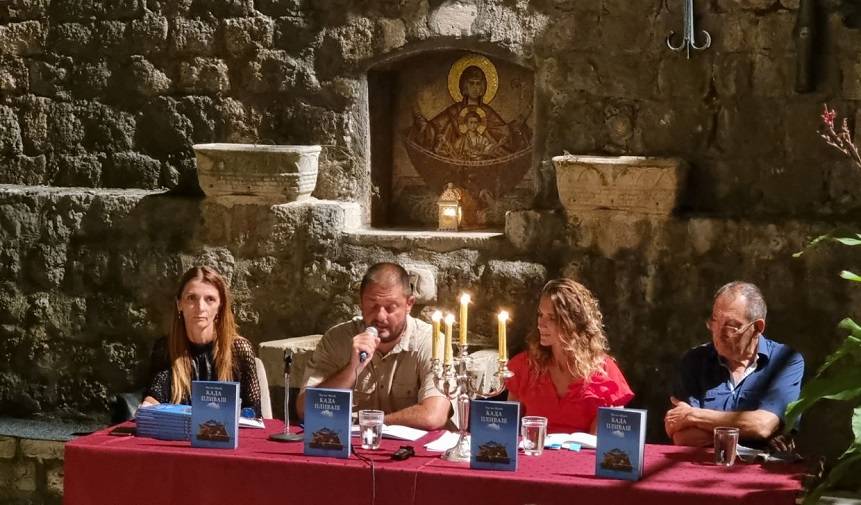
THE POEM "WHEN YOU'RE SWIMMING" WAS PROMOTED LAST NIGHT IN KOTOR
Serbian Choir Society (SPD) Jedinstvo (1839) Kotor last night in the gate of the Church of St. Nikola had the honor of promoting the poem "When you swim" by prominent documentary director and journalist Rastko Šejić.
Šejić, an artist of various talents, with many years of involvement in the social and artistic spheres, through the metaphorical poem "Kada plivaš", published by IK Prometej Novi Sad, Matica Boke and the Association "Šta hoćeš", conveys his deep connection with Boka.
After successful promotions held in ten cities of the region, last night the following spoke about the poem in addition to the author: Dragan Đurčić, honorary member and long-time secretary of SPD "Jedinstvo", Isidora Lazarević Milivojević, professor of French language and literature and Ljiljana Čolan, professor of Serbian language and literature, who is said that Šejić expresses his immense sensitivity in his poem.
"That sensitivity is something that in some way forced me to, when I received the book, and I received it, not by chance, on Friday of this year, to start thinking about what the sea means for us who are on the coast here, and what the sea means for those who come from time to time and who begin to feel the sea as a special homeland, as a special kind of freedom of being", said Čolan, reminding that Miloš Crnjanski also said that the homeland is where our being feels free, and that for Rastko Šejić it is precisely Boka.
The poem, he continues, was written as a kind of dialogue between the one who writes, the one who creates and the one who reads thinks and creates a new kind of poem of his own, building his own world of sensibility.
"Rastko's poem has no punctuation marks." It was written in the rhythm of breathing while swimming," said Čolan, adding that it is not the same to swim in the sea or in some fresh water.
He points out that many questions can remain unanswered if we do not actively start participating, that is, we do not swim through the life that has been given to us.
"I got the answers by looking at Rastko's verses, but also by referring to my own experience of swimming in the sea, metaphorically swimming in life but also in reading experience." This face in which the poem was written also helped me. The second person singular, one you that can also be us, when the lyrical subject and the reader come together", said Čolan, referring briefly to the literature of the 19th century (when writers ask themselves what kind of world it is), and then the 20th century with all its wars, the cruelty of which was also felt in literature, which now asks, no longer what kind of world it is, but what kind of world it is that we live in, where we are and how to navigate in all this, to swim .
He points out that Rastko does not give up, "so his man of deep sensitivity becomes a fighter who fights injustice around him (in accordance with the characteristics of the poem that has lyrical, dramatic and epic elements).
Honorary member and long-time secretary of SPD "Jedinstvo", Dragan Đurčić, said that it was nice to hear nice words last night and that reading the book he found himself in many things.
"Author Rastko Šejić came into our lives in 2018 when we heard that the series "Na veslu priča" would be filmed in Kotor. "Unity" is related to Rastko Šejić, not only because Mrs. Isidora Lazarević Milivojević and I are participants in the series, but also because he was the narrator. It is important that after that there were several recordings of our choirs, and we have children's, youth and mixed choirs. Then our anthem was recorded, as well as the provocative series "Boka pomorska", significant for Boka, which has not yet been completed, but where many people learned what the power of Boka was, but not who destroyed that power, so I eagerly await for that to happen. Rastko, in any case, thank you for this book, thank you for the cooperation with "Jedinstvo", said Đurčić, among other things, indicating that all events in 2024, when our Singing Society celebrates 185 years of existence, including tonight's, are related to this jubilee.
Remembering the experience with Rastko Šejić during the filming of the series about Boka "Na veslu priča", Isidora Lazarević Milivojević said that she immediately "connected" with the poem "Kada plivaš" and that very simply and with sensitivity.
"Rastko is someone who doesn't like any kind of extravagance, additional embellishments. When I rowed from Stoliv to Gospa od Škrpjela, he asked me to tell a story, if it were to sink, which could serve as a seed for those who come after us," said Lazarevic Milivojević, saying that the story "The Source of All Time" was then created.
He points out that Rastko swims in that source of modernity very alert, with sharpened senses.
"He is in it and in complete agreement with it, because when you swim you are part of the overall beauty of existence." He calls self-agreement and coexistence complete peace and belonging to nature. It is the pulse of life that Rastko's poetry breathes, from the very beginning when you swim to the moment you emerge. Breathing does not stop there. It flows back into the life you are going through when you close this book, because all the pictures that Rastko brings, between when you swim and when you emerge, are very vivid. Their thread has not been cut. That message is woven into them, the question he sent to me "what if there is a sinking", Lazarević Milivojević said, among other things, concluding that we have forgotten the "little" man .
On the other hand, Rastko preaches brotherhood to the birds and swims with a school of fish because they are not food but a member.
The author of the poem "Kada plivaš", Rastko Šejić, said that things are not done to be done and that there is a lot of mystification surrounding creativity, and thus also around "writing a story that you simply had to write down in the moment".
Looking back on the recording period, he points out that "it was simply a state of war with some super band we were working with".
"We made some 102 episodes of "Na veslu priča" which were on RTS and 11 episodes of the series "Boka pomorska" which were on TVCG. I think we told a wonderful story. Here I see another wonderful interlocutor who took part in it and of course Nemanja too, and I think we are somewhere together. Here, I am not someone who stopped by some foreign area, but this here is more my church than any other I entered in another area", said Šejić.
He points out how important is the atmosphere of the city and the temple, which breathe in a way that stimulates one's need for creativity or a way of interpretation.
"It is a real victory and the reason why dialogue is the most valuable in the world," said Šejić, reminding us that we are the generation that witnessed the fall of the Berlin Wall but also its re-erection.
Modern man, he continues, lives in a constant "scramble" to reach his tail and be satisfied when he does it, and then to drop dead having finished his work "which is utter madness."
"It is again only related to our consent to treat our time and the time of this world in that way, to be a part of that flow at any cost." That's why I have to say that to a large extent Boka is a refugee. For me personally, Boka is a refugee and those three months are one season of the year when I'm here. That time is a complete "stop" and the possibility of a completely different functioning, a refugee from various prohibitions and impossibility and what grinds. There is this expression "slowly", reminded Šejić, adding that his book, which was presented to the people of Kotor last night at the gate of the church of St. Nikola, also arose from the desire to "change the film" after three years of work on the aforementioned series.
Through this geopoetic book, Šejić creates the sacred ritual of swimming as a path to harmony with nature and oneself, while vividly evoking transitional and mental challenges, in the tone of a "melancholic activist" and a "talented swimmer", as critics have called it. According to interpretations, the poem can be read as a complete metaphor for life's storms, but also as "instructions for going to sea".
The illustrations of the academic painter Zoran Mujbegović complete the experience of the poems in detail and detail.
Excerpts from the poem "When you swim" were read by Elena Simović, a student of the third grade of Kotor Gymnasium, and the musical accompaniment was created by Nikola Vukšić, a member of the choir "SPD Jedinstvo".
PHOTOS
RELATED ARTICLES
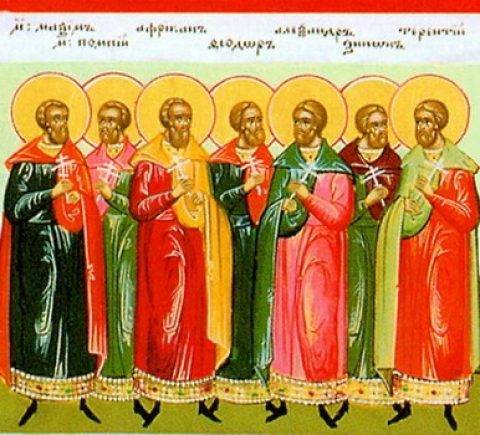
Calendar for April 23 The Holy Martyrs Terentius, Africanus, Maximus, Pompey and Others
They suffered for Christ and were crowned with a crown of glory during the...
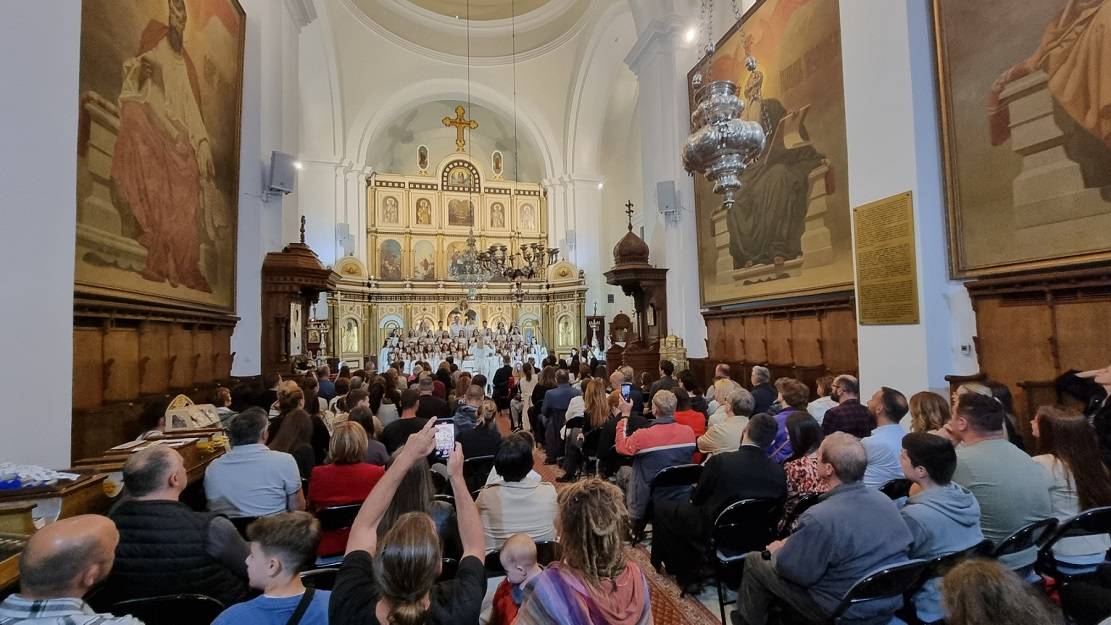
EASTER CONCERT OF THE CHILDREN'S, YOUTH AND SENIOR CHOIR OF THE SPD JEDINSTVO HELD
In the Church of St. Nicholas in Kotor, the Easter concert and another, to say...
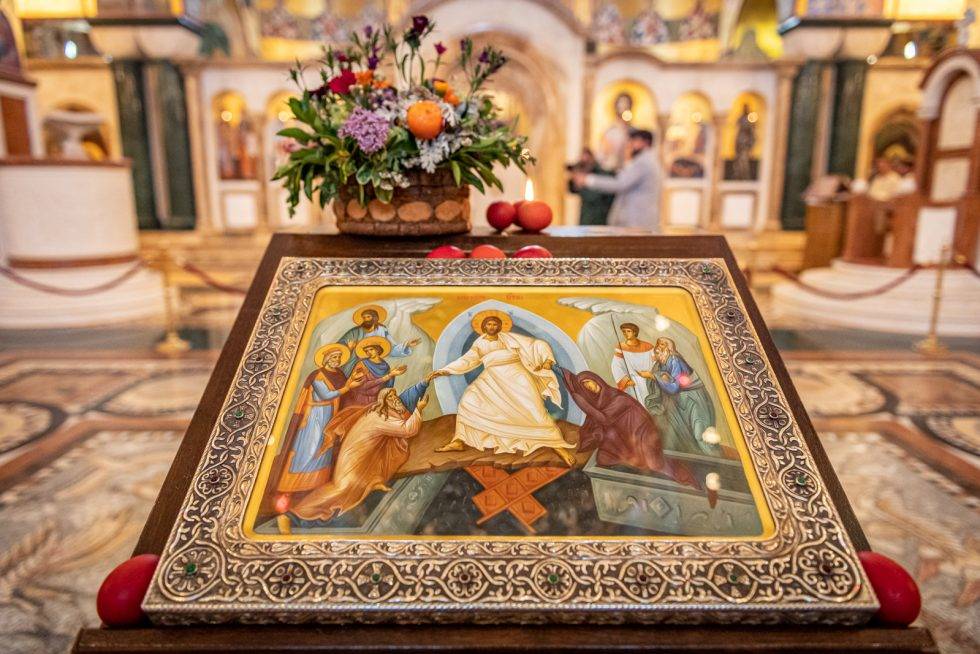
Easter Tuesday
Maundy Tuesday, Easter Tuesday (Greek: Τρίτη...


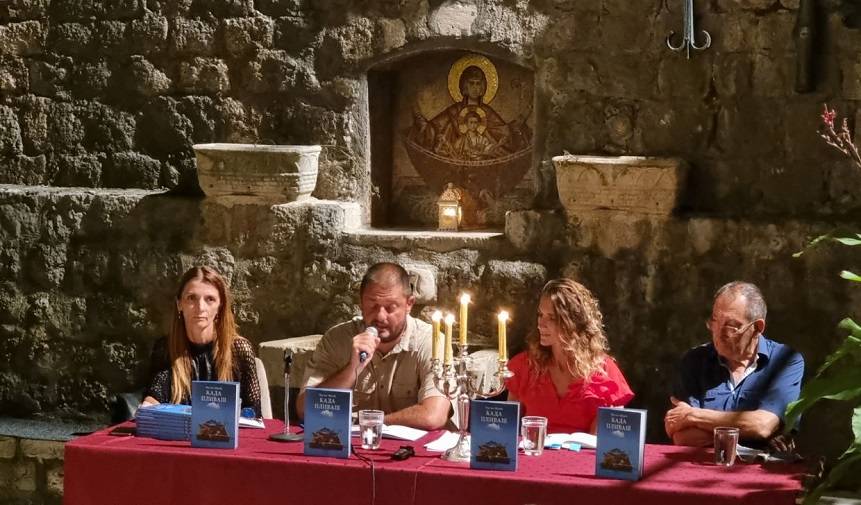

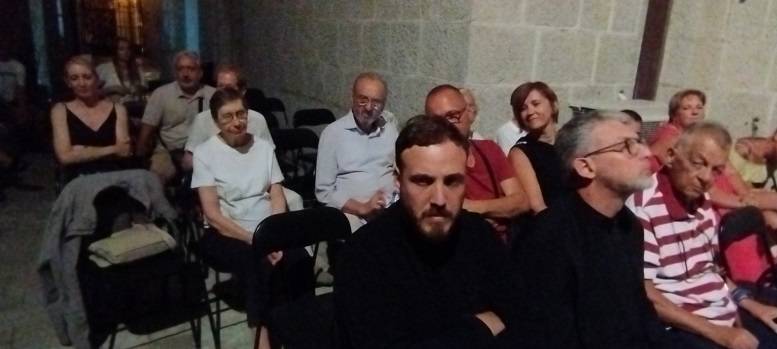
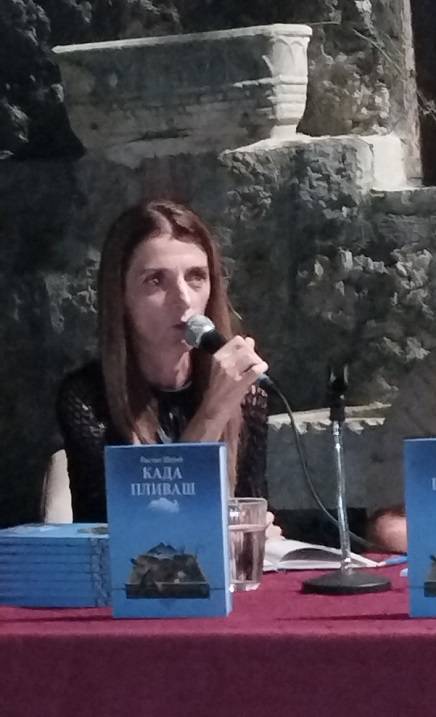
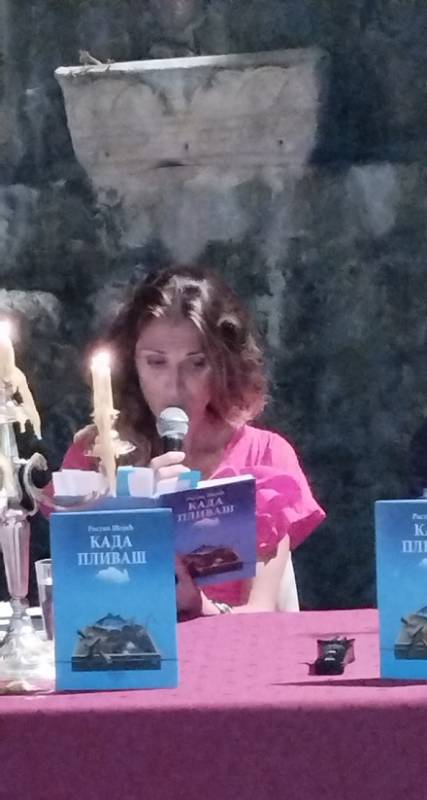
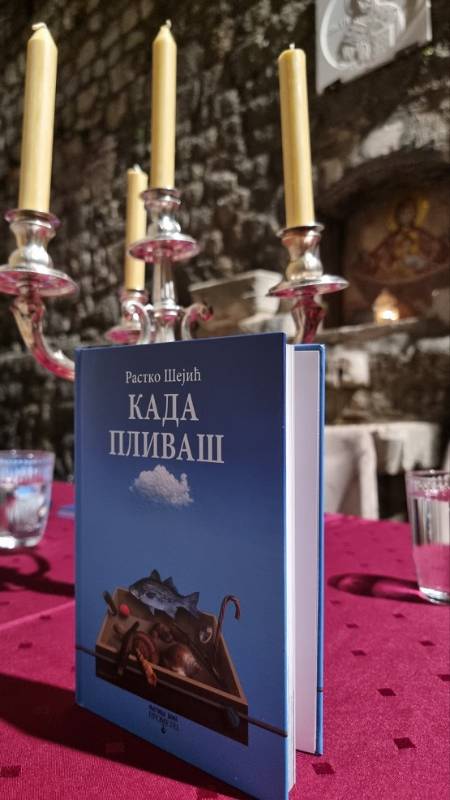
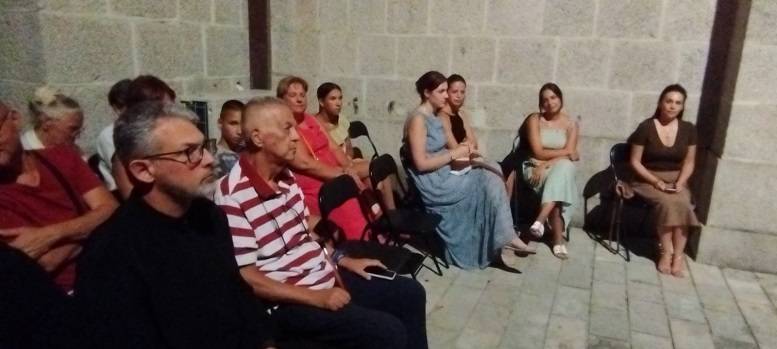
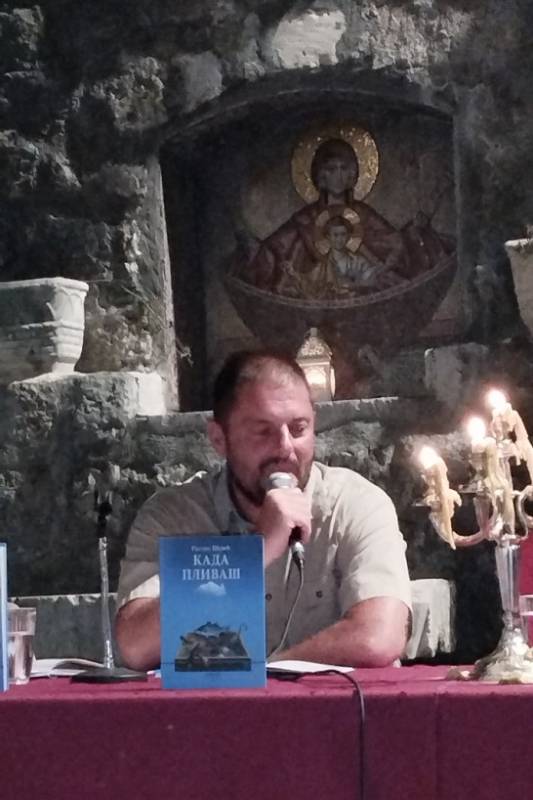
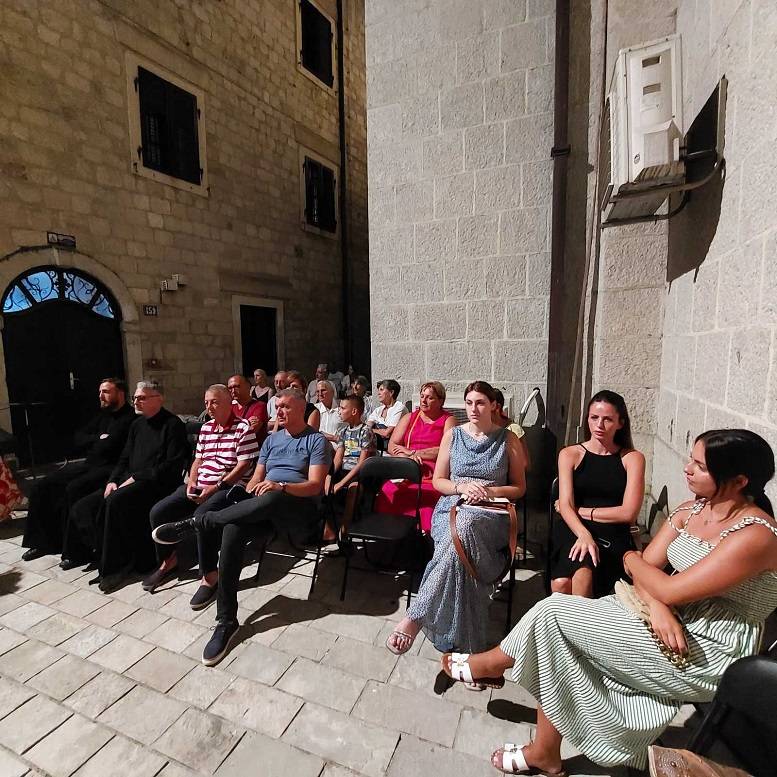
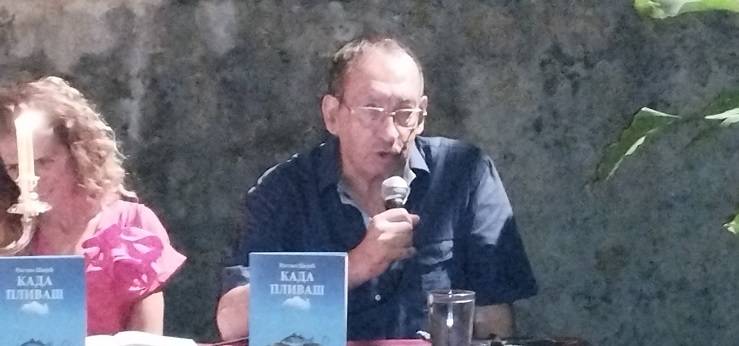
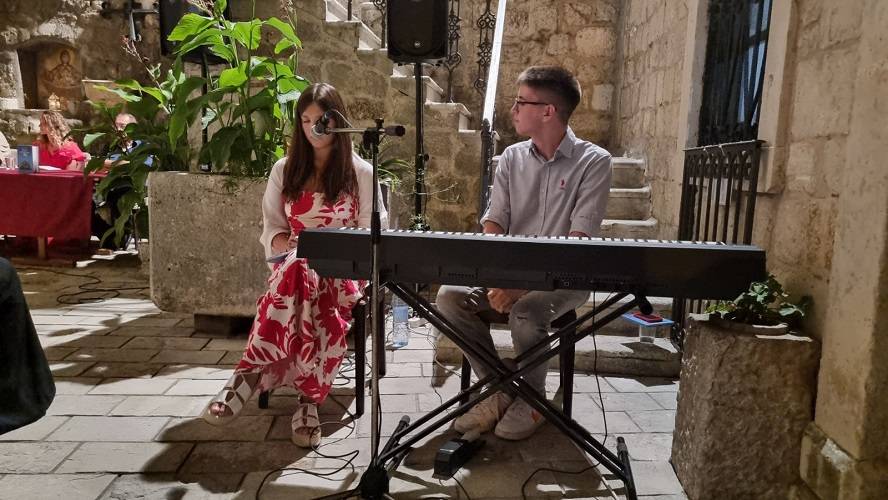
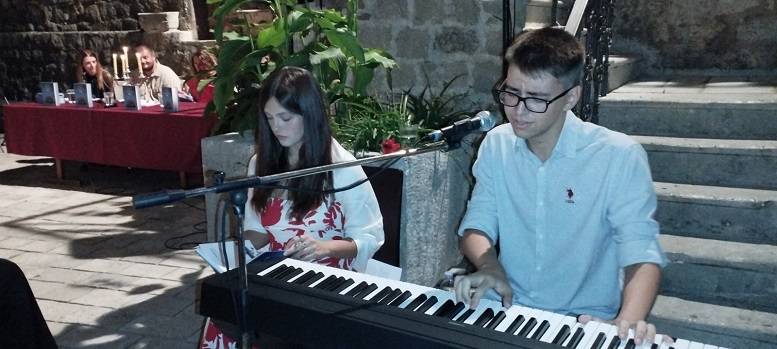
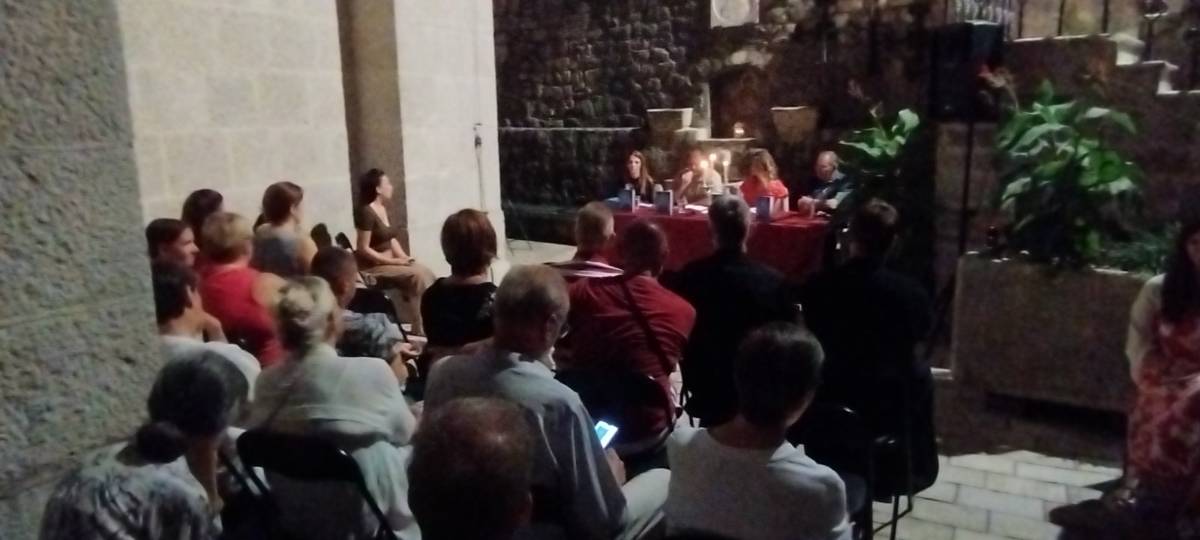
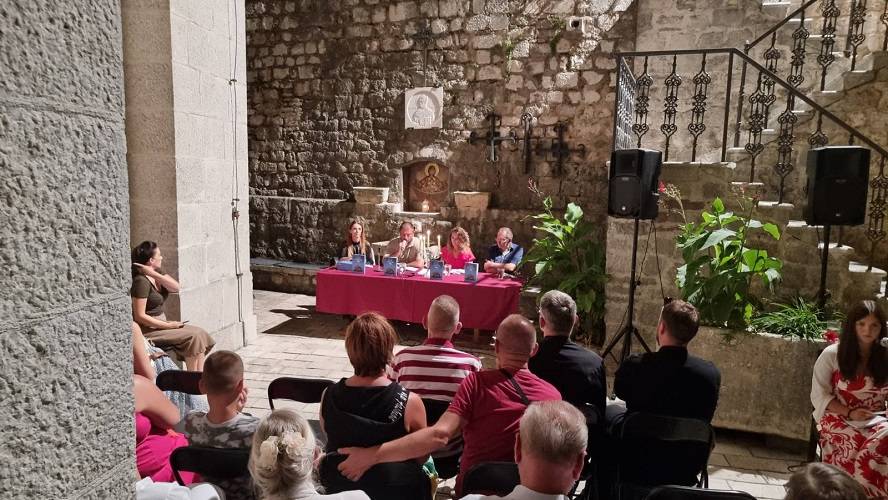
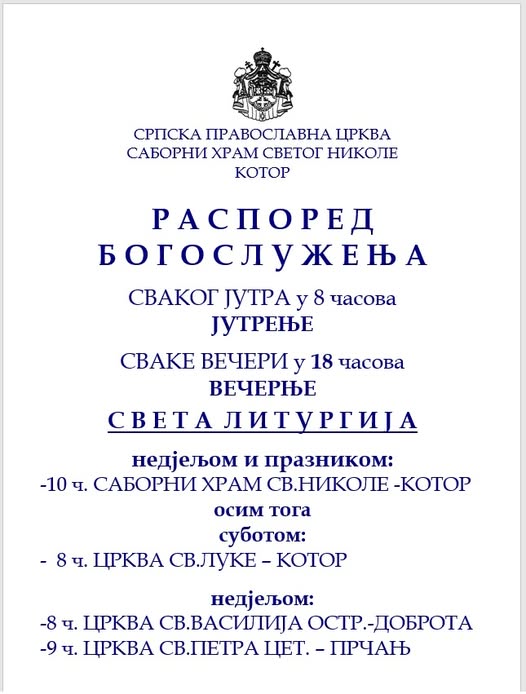
.png)